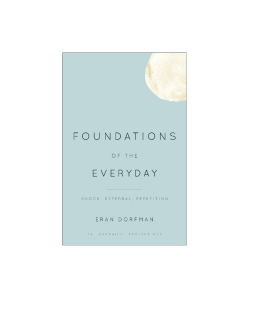
Additional Information
Book Details
Abstract
We are used to seeing the everyday as an ordinary aspect of life, something that we need to "overcome"; whereas it actually plays a crucial role in any event of our lives. This highly original book engages with a range of thinkers and texts from across the fields of phenomenology, psychoanalysis and critical theory, including Husserl, Heidegger, Merleau-Ponty, Freud and Benjamin, together with innovative analysis of French literature and the visual arts, to demonstrate that the role of repetition and deferral in modernity has changed dramatically. Rather than allowing the everyday gradually to integrate singular events into its repetitive texture, events are experienced now as self-enclosed entities, allegedly disconnected from the everyday, leading to its impoverishment. The book thus offers a novel understanding of being, body, trauma and shock, but within the framework of the everyday as a concept that deserves a theory of its very own.
Eran Dorfman is senior lecturer in French at Tel Aviv University, Israel, and a former program director at the Collège International de Philosophie, Paris. He is the author of Learning to See the World Anew: Merleau-Ponty Facing the Lacanian Mirror (Phaenomenologica, Springer, 2007, in French) and the co-editor of Sexuality and Psychoanalysis: Philosophical Criticisms (Leuven University Press, 2010).
Dorfman’s book has a range, a depth of inspiration and a multilayered quality that forcefully demands our attention. It is a subtle investigation of our current predicament, one which solidly resists the doubleedged sword of romanticism and cynicism. [T]he unprecedentedly sympathetic ear he lends to the endless little sufferings of the late-modern condition makes his book an important contribution to our self-understanding, and to the urgent project of cultural therapy.
[A]n excellent book that forcefully argues for, and comprehensively addresses, the contemporary importance of the everyday. Dorfman clearly and imaginatively weaves together a variety of authors and phenomena, whose interrelation would by no means be apparent at first glance. Foundations is a landmark in philosophical reflections on the everyday, as well as indispensable reading for those interested in modernity and trauma studies.
Clear, subtle, and ultimately affecting […] an entertaining and persuasive read, and one that would be of interest to anyone who wishes to explore why contemporary western subjects have lost a particular kind of connection with the everyday, and who want suggestions on how to regain it.
"Dorfman carefully uncovers the critical dimension in phenomenology through Husserl’s, Heidegger’s and Merleau-Ponty’s implicit analyses of ‘negativity’."
[A]n intriguing analysis of the multifaceted ways in which the everyday serves as a foundation of our bodily and cultural existence … enjoyable and worthwhile.
